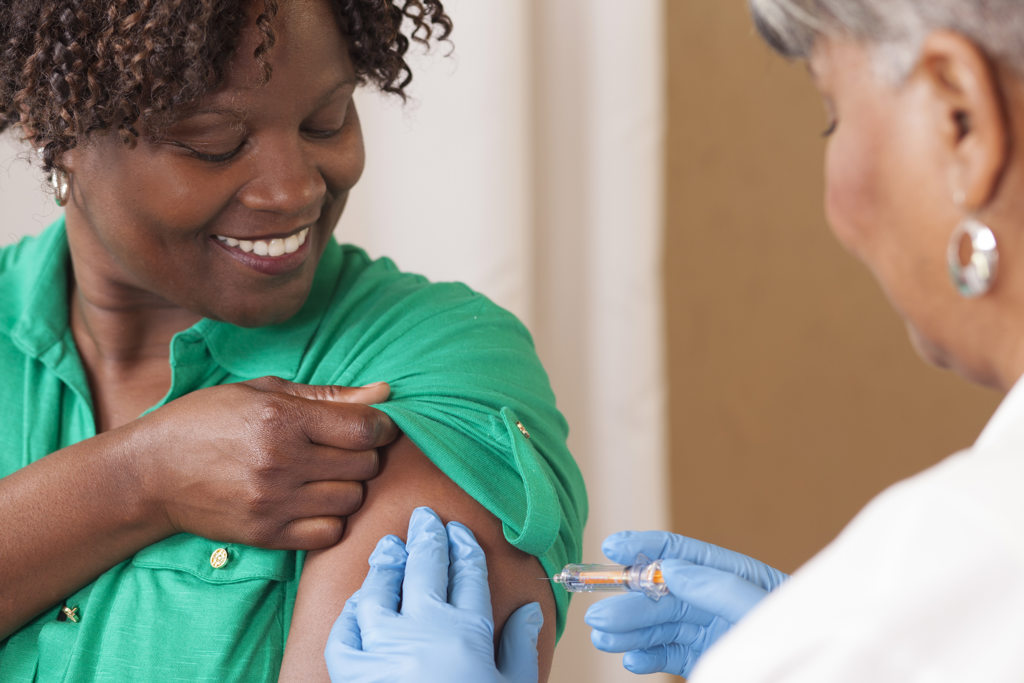Protect Yourself and Others

Flu season will be here before you know it and it is important to mark your calendar to get a flu shot. There are many essential and lifesaving vaccines that both children and adults need to stay healthy and to protect those around them from becoming ill.
“Certain groups of people, such as those who are too young or whose immune system cannot tolerate vaccines, rely on herd immunity to protect themselves,” said Joanna R. Swauger, DO, a family medicine physician at Penn Highlands Family Practice in Belle Vernon, Pennsylvania. “Herd immunity is when enough people get vaccinated against a specific disease that the chances of it spreading from person to person decrease, making the entire community safer and less likely to become overwhelmed with infection.”
What vaccinations do children need?
Every parent should talk to their child’s primary care physician about the proper immunization schedule. Here is a list of the basic vaccinations most children and adolescents need:
- Dtap/Tdap vaccines protect against diphtheria, tetanus and pertussis (whooping cough)
- Flu shot
- Hib vaccine protects against influenza type B
- Hepatitis A and B
- HPV vaccine protects against the human papillomavirus, which can cause cancer
- IPV protects against polio
- Meningococcal conjugate and serogroup B meningococcal vaccines protect against meningitis.
- MMR protects against measles, mumps and rubella
- PCV13 vaccine protects against pneumococcus
- RV protects against rotavirus
- Varicella vaccine protects against chickenpox
What vaccinations do adults need?
In addition to an annual flu shot, adults should talk with their primary care physician about the following vaccinations:
- COVID-19 vaccine/boosters
- Tdap protects against tetanus, diphtheria and pertussis
- Herpes zoster vaccine protects against shingles
- Pneumococcal conjugate and/or pneumococcal polysaccharide vaccines
- Hepatitis A and B
- Meningococcal conjugate or serogroup B meningococcal vaccine
Many vaccines are not a one-and-done solution, so it is important to keep up to date with annual shots like those for the flu, multi-part vaccines like HPV, and COVID-19 booster shots. You also want to ensure that you keep good written records, as proof of vaccinations will be required by most schools and some employers.
Are vaccines safe?
Yes, vaccines are safe. They go through extensive safety testing and evaluation before they are approved. Vaccines are first tested in a laboratory setting. Based on the results of those tests, the Food and Drug Administration (FDA) decides whether to proceed with testing in people through clinical trials, which start with 20 to 100 volunteers and eventually include thousands of volunteers. After a vaccine is added to the vaccination schedule, it is continually monitored by the FDA, CDC and other government agencies to ensure that it is safe.
The Advisory Committee on Immunization Practices (ACIP) is comprised of medical and public health experts who develop recommendations on the use of vaccines in the civilian population of the United States. The Department of Defense also utilizes ACIP recommendations and guidelines.
Whether you’re concerned about getting an infant off to a healthy start, sending your kids to school or keeping yourself protected from the flu or shingles, the primary care physicians at Penn Highlands Family Medicine Clinics can help. Learn more about immunizations or schedule an appointment at www.phhealthcare.org/service/immunizations.
